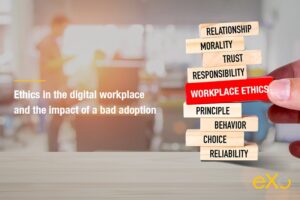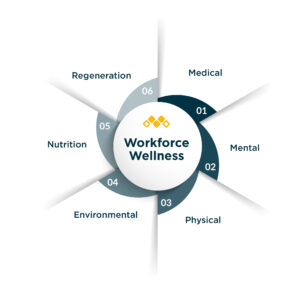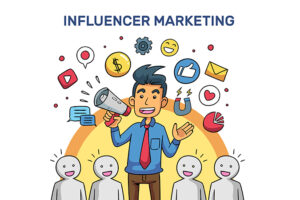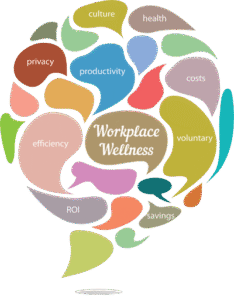Empathy & Productivity: New Corporate Culture Imperatives
8 min read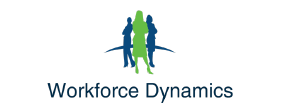
The traditional corporate paradigm, often equating long hours with peak performance, is undergoing a profound transformation. A new era is dawning where empathy and a robust work-life balance corporate strategy are no longer just HR buzzwords but critical drivers of productivity, innovation, and talent retention, particularly within high-performance teams. As organizations globally vie for top talent, the ability to foster environments that integrate personal well-being with professional demands is emerging as a non-negotiable imperative, signaling a fundamental shift in how successful teams are built and sustained.
Background: The Shifting Sands of Workforce Dynamics
For decades, high-performance teams were characterized by intense pressure, demanding schedules, and an unspoken expectation of constant availability. While this model often yielded results, it came at a significant cost: burnout, high turnover rates, reduced creativity, and diminished employee engagement. The COVID-19 pandemic acted as a powerful catalyst, forcing companies to confront the realities of remote work and the blurring lines between professional and personal lives. This unprecedented period illuminated the fragile nature of employee well-being and the critical need for systemic changes in corporate culture.
Post-pandemic, the demand for greater flexibility and support has become a defining characteristic of the modern workforce. Employees, especially those in high-stakes roles, are actively seeking employers who demonstrate genuine care for their holistic well-being. This shift is not merely a preference but a strategic necessity for businesses aiming to remain competitive in a dynamic global economy. Companies are realizing that a truly high-performing team cannot be sustained if its members are consistently operating on the brink of exhaustion or feeling undervalued in their personal struggles. The integration of work-life balance corporate strategy is therefore evolving from a perk into a core organizational value, directly impacting an enterprise’s ability to attract, develop, and retain its most valuable assets.
Recent studies, for instance, highlight a direct correlation between employee well-being initiatives and improved organizational outcomes, including higher employee morale, reduced absenteeism, and a stronger employer brand. Leading HR consulting firms report that companies embracing a holistic approach to work-life integration are significantly outperforming their peers in terms of employee satisfaction and retention rates. This evolution underscores a critical insight: sustained high performance is intrinsically linked to sustainable employee well-being.
Key Developments: Redefining High Performance Through Empathy and Integration
The embrace of empathy and work-life integration is manifesting through several key developments in corporate culture, challenging traditional notions of how high-performance teams function:
- Flexible Work Models as Standard Practice: Beyond mere remote work, organizations are implementing truly flexible models such as compressed workweeks, hybrid schedules, and asynchronous communication strategies. This allows team members greater autonomy over their schedules, empowering them to manage personal responsibilities alongside professional ones without feeling penalized. For example, some tech giants are experimenting with a "four-day workweek" with no reduction in pay, reporting increased productivity and employee satisfaction.
- Prioritizing Mental Health and Well-being Support: Companies are investing significantly in mental health resources, including access to counseling, stress management programs, and dedicated "mental health days." There’s a growing recognition that psychological safety is foundational for high-performing teams, allowing individuals to speak up, take risks, and innovate without fear of judgment. An industry expert recently stated, "Fostering a culture where discussing mental health is normalized, not stigmatized, is paramount for unlocking a team’s full potential."
- Empathy-Driven Leadership Training: Leaders are being trained to lead with empathy, understanding the diverse personal circumstances of their team members. This involves active listening, recognizing signs of burnout, and offering support rather than solely focusing on deliverables. Such leadership fosters trust and psychological safety, crucial for teams navigating complex challenges.
- Outcome-Oriented vs. Hours-Oriented Performance Metrics: The focus is shifting from tracking hours spent to measuring tangible outcomes and impact. This paradigm allows employees to manage their time effectively, prioritizing results over mere presence, and is a cornerstone of an effective work-life balance corporate strategy. It encourages efficiency and empowers individuals to find their most productive working patterns.
- Dedicated "Focus Times" and "No Meeting Days": To combat meeting fatigue and constant interruptions, many companies are instituting dedicated blocks of "focus time" or "no meeting days." This ensures team members have uninterrupted periods for deep work, boosting concentration and productivity.
Emerging Tools and Technologies for Seamless Integration
To support these cultural shifts, companies are leveraging advanced technologies:
- Collaboration Platforms with Enhanced Features: Tools like Slack, Microsoft Teams, and Asana are evolving to include features that promote mindful communication, such as "do not disturb" settings, scheduled messages, and clearer project management dashboards that reduce the need for constant check-ins.
- AI-Powered Wellness Apps: Many organizations are integrating AI-powered wellness apps that offer personalized meditation guides, stress trackers, and mental health resources, allowing employees to proactively manage their well-being.
- Flexible Scheduling Software: Advanced software helps teams coordinate flexible schedules efficiently, ensuring coverage and seamless project flow even with varied working hours.
Impact Analysis: Navigating the New Landscape for Global Talent
This paradigm shift towards empathy and integrated work-life balance corporate strategy has significant ramifications for the global workforce, particularly for international students aspiring to join high-performance teams in dynamic industries. Understanding these impacts is crucial for successful career planning and integration.
Benefits for Employees and Companies:
- Enhanced Employee Engagement and Loyalty: Employees who feel supported and understood are more likely to be engaged in their work and loyal to their organizations. This translates into higher retention rates, especially for valuable team members.
- Increased Productivity and Innovation: A well-rested and mentally healthy workforce is inherently more productive and creative. When individuals have time to recharge and pursue personal interests, they bring fresh perspectives and renewed energy to their professional roles, fueling innovation.
- Broader Talent Pool: Companies offering robust work-life integration attract a more diverse pool of talent, including parents, caregivers, and individuals with varied personal commitments, who might otherwise be excluded by rigid work structures. This diversity, in turn, enhances problem-solving and decision-making within teams.
- Stronger Employer Brand: Organizations known for their empathetic cultures and commitment to employee well-being gain a significant competitive advantage in the talent market. This positive employer brand helps in attracting the best and brightest.
Implications for International Students:
For international students, navigating this evolving corporate landscape presents both opportunities and challenges:
- Opportunity for Better Quality of Life: Aspiring professionals can seek out companies that genuinely prioritize work-life integration, ensuring a more sustainable and fulfilling career path abroad. This is particularly important for individuals adapting to a new country and culture, where personal support systems might be different.
- New Skills in Demand: Employers will value candidates who demonstrate adaptability, strong self-management skills (especially in flexible environments), and an understanding of the importance of personal well-being. The ability to thrive in an autonomous yet collaborative setting will be highly sought after.
- Importance of Cultural Understanding: International students must understand that while the general trend is towards integration, specific cultural norms around work-life balance can vary significantly by country and even by company. Researching a company’s actual practices, beyond its stated policies, will be vital.
- Advocacy for Personal Boundaries: Learning to communicate personal boundaries effectively within a professional context will be a critical skill. This includes managing expectations around availability and ensuring personal time is respected while still contributing meaningfully to team goals.
"International students often face unique pressures, including cultural adjustment and visa requirements, which make a supportive work environment even more crucial," notes a career counselor specializing in global employment. "They should actively seek out organizations where work-life balance corporate strategy is not just on paper but deeply embedded in the daily operations and leadership approach."
Expert Insights and Practical Tips
For individuals, especially international students preparing to enter high-performance environments, embracing the principles of work-life integration requires proactive strategies:
For Job Seekers (International Students):
- Research Company Culture Thoroughly: Look beyond glossy career pages. Scour employee reviews on platforms like Glassdoor or LinkedIn. During interviews, ask specific questions about flexibility policies, mental health support, and how the company fosters work-life integration within its high-performance teams.
- Highlight Self-Management and Adaptability: Emphasize experiences where you successfully managed multiple commitments, adapted to new environments, or thrived in autonomous settings. These skills are critical in a flexible work paradigm.
- Network with Current Employees: Connect with people working at your target companies. Their insights can provide a realistic picture of the company’s commitment to work-life balance corporate strategy and overall culture.
- Understand Performance Metrics: Ask how performance is measured. A focus on outcomes over hours is a positive indicator of a progressive work-life integrated environment.
For Employees in High-Performance Teams:
- Set Clear Boundaries: Define your working hours and communicate them to your team. Resist the urge to check emails or work outside these hours consistently.
- Utilize Available Resources: Take advantage of mental health programs, wellness initiatives, and flexible work options offered by your employer. They are there to support your well-being.
- Communicate Proactively: If you’re feeling overwhelmed or need flexibility, communicate early and clearly with your manager and team. Transparency fosters understanding and allows for collaborative solutions.
- Prioritize Self-Care: Integrate activities that help you recharge, whether it’s exercise, hobbies, or spending time with loved ones. Remember, sustainable high performance comes from a well-balanced life.
- Be an Advocate for Empathy: Contribute to a culture of empathy within your team. Listen to colleagues, offer support, and celebrate their personal and professional achievements.
An expert in organizational psychology advises, "The most successful professionals in this new landscape will be those who can skillfully integrate their professional ambitions with a robust commitment to personal well-being. It’s about working smarter, not just harder, and understanding that productivity peaks when individuals feel valued and balanced."
Looking Ahead: The Future of High-Performance Work
The trajectory towards empathetic and integrated work environments is set to accelerate. We can anticipate several further developments shaping the future of high-performance teams:
- Hyper-Personalized Work-Life Solutions: As data analytics improve, companies will likely offer increasingly personalized work-life integration solutions tailored to individual employee needs, moving beyond one-size-fits-all policies.
- Greater Emphasis on "Meaningful Work": Beyond flexibility and benefits, employees will increasingly seek roles that offer a sense of purpose and meaning, aligning with their personal values. This will become another cornerstone of effective talent attraction and retention.
- AI and Automation to Enhance Well-being: Further advancements in AI and automation could free up employees from repetitive tasks, allowing them to focus on more creative, strategic, and fulfilling aspects of their roles, thereby enhancing job satisfaction and reducing burnout.
- Global Standards for Work-Life Balance: As the global talent market becomes more interconnected, there may be an emergence of more unified international standards or best practices for work-life balance corporate strategy, making it easier for international professionals to transition between roles and countries.
- Re-evaluation of "High Performance" Itself: The definition of high performance will continue to evolve, moving away from solely quantitative metrics to include qualitative aspects like team cohesion, adaptability, and sustainable output over long periods, rather than short bursts of intense activity.
The journey towards truly empathetic and integrated corporate cultures is ongoing, but the direction is clear. Organizations that proactively embed these principles into their core strategies will not only attract and retain the best talent but will also build more resilient, innovative, and human-centric high-performance teams ready for the challenges of tomorrow.
Reach out to us for personalized consultation based on your specific requirements.
